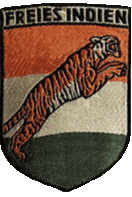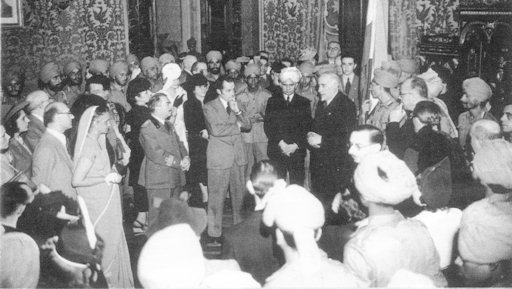
|
||||||||||||||||

|
Sample PagesPlease Select a Chapter from the menu below
Chapter 3: The Battaglione Azad HindostanWhile Subhas Chandra Bose was working to establish the Legion Freies Indien in Germany, events were taking a very similar course in the other European Axis Power: Italy. In many ways the Italian experience paralleled that in Germany but their Indian military experiment was comparatively short-lived and came to a close just as the Legion Freies Indien was emerging as a fully-fledged military unit. The Indian Legion in Germany was essentially the creation of one individual and the same was also the case in Italy, but in that country the Indian Nationalist movement was under the leadership of a very different man: Mohammed Iqbal Shedai. 
Members of the Battaglione Azad Hindostan at an unknown event. The figure dressed in a black suit and wearing a white turban has been identified as Mohammed Iqbal Shedai. (Unknown)
|
What others say about the book: "a most valuable and timely contribution to the literature of the war ... does much to redress the tabloid version of the Second World War the world has accepted" Mihir Bose, Author, Journalist, Broadcaster, former BBC Edito and Biographer of Subhas Chandra Bose. "A priori we never really know what will lead to success: When all is said and done, the attempt to set up an Indian Legion certainly seemed a worthwhile effort for the Indian side and, for probably other reasons, for the various German actors, as well. I sincerely hope that this book will be of interest to many people concerned with the topic of Indo-German relations in a historic perspective and with this little-known part of British colonial history. " Prof. Dr. Anita B. Pfaff, daughter of |
||||||||||||||
|
|
||||||||||||||||